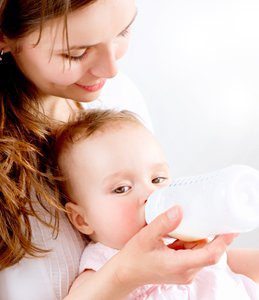When it comes to getting ready for baby, oftentimes the hardest part is just getting pregnant in the first place!
For women who are struggling to conceive, the path to having a little guy or gal can often be unclear and, at certain moments, downright frustrating. As women work to get pregnant, the roadblocks they may encounter can seem too tough to overcome, and while this is certainly an issue, it’s not impossible to push these challenges aside.
If you’ve been struggling to get pregnant with your partner and you still believe this is an option, you should consider these six natural pregnancy tips. With our help, you may be able to better increase your chances of having a baby.
1. Boost your vitamin intake
If you want to increase your chances of getting pregnant, you may want to start by looking at how many vitamins you get on a daily basis.
Did you know that zinc can be an incredibly potent vitamin that helps you feel more energized, along with vitamins B, E, iron and selenium? If you’re unsure if your vitamin consumption makes the cut, you should schedule a vitamin and mineral screening with your healthcare provider today.
2. Avoid unhealthy fats
Everyone enjoys snacking on a handful of potato chips or a slice of cake every once in a while, and although there’s nothing wrong with this from time to time, it’s also very important that you watch out for – and avoid – too many unhealthy fats, as these can make you more likely to have fertility problems.
Specifically, trans fats are a big no-no and can lead to inflammation as well as impact ovulation and a baby’s eventual development if you keep eating foods with trans fats, like french fries, fried chicken and cookies.
First time mothers who still enjoy eating foods with fats in them should opt instead for those with healthier kinds, like avocados, coconuts, coconut oil, nuts and seeds. In addition, cooking food in extra virgin olive oil can be a good way to increase healthy fat intake.
3. Increase folate and iron intake
Are you ready to take your fertility to the next level? If so, you should begin enhancing your folate and iron intake, as both of these essential nutrients can make major differences in your body’s ability to conceive.
How does this happen? Folic acid, which is derived from folate, and iron can help strengthen DNA and keep homocysteine levels within a good range. Foods rich in folate include chick peas, lentils, spinach and lima beans. For more iron, avocados, goji berries and lentils are equally good to consume.
4. Chart your basal body temperature
If you’re serious about getting pregnant, you should be charting your body’s basal temperature on a regular basis, as this can determine whether you’re ovulating or not.
“Your temperature usually dips by half a degree 24 hours before you ovulate; then it goes up as you ovulate,” Pette Zarmakoupis, M.D., an ob-gyn and director of the Kentucky Center for Reproductive Medicine in Lexington, told Parenting magazine.
5. Monitor cervical mucus
In addition to checking your basal body temperature, another natural way to determine whether your body is primed and ready to get down to business is monitoring your cervical mucus levels. It seems kind of intense, but hear us out here: If you notice a pattern with secretions over the course of a month or two, this is just the kind of thing that can help you determine how fertile you are.
This is because mucus is more likely to thin out after a period due to estrogen levels. On the flip side, if you’re ovulating, progesterone will make mucus thicker than ever.
“It’s not as reliable as a kit,” Sandra Carson, M.D., professor of ob-gyn at Baylor College of Medicine in Houston, told the news source of monitoring cervical mucus. “But it doesn’t cost anything.”
However, a first time mother should also remember that certain drugs, like antihistamines, could impact the effectiveness of this method.
6. Watch out for radiation
Did you know that cell phones can actually be a source of radiation for men and women? If your partner has a cell phone that he puts in his pocket, this could actually decrease the potency of sperm and reduce your likelihood of getting pregnant.
Keeping out of the sun for extended periods of time to avoid getting sunburned can also be an effective way to overcome radiation-related fertility problems.
These tips can be essential for helping you get pregnant with a little guy or gal and ensure each trimester is beneficial, but make sure that you also contact a trusted healthcare provider if you continue to have issues, as this could be a sign that something else is going wrong.
